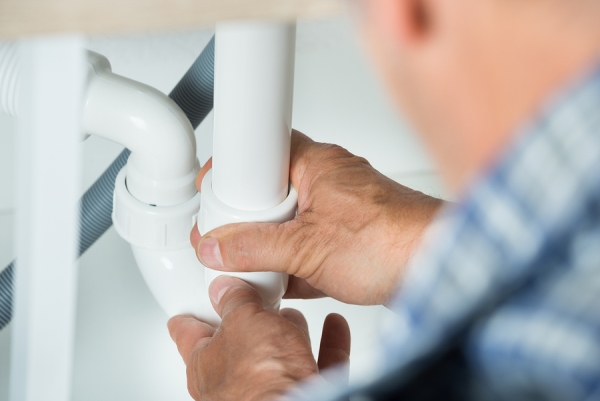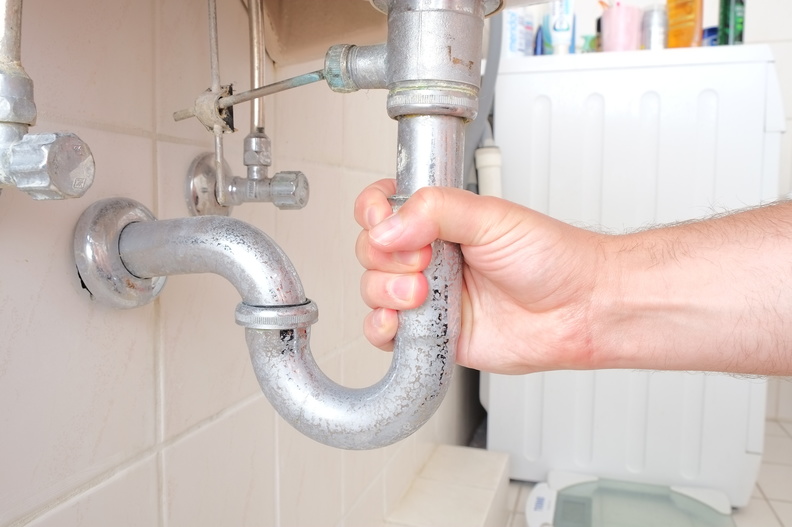Crucial Emergency Plumbing Tips to Apply Until Help Arrives
Crucial Emergency Plumbing Tips to Apply Until Help Arrives
Blog Article
How do you feel in regards to Expert Tips for Managing a Plumbing Emergency Until Help Arrives?

Plumbing emergencies can strike at any moment, triggering tension and prospective damage to your home. Whether it's a burst pipe, a clogged drain, or a dripping tap, knowing how to manage the situation till a specialist plumbing professional gets here can conserve you from additional problems. This short article provides essential emergency situation pipes ideas to assist you reduce damage and regain control throughout a pipes situation.
Switch off the Water System
The first step in any pipes emergency situation is to shut off the water supply. For local problems, such as a leaking faucet or commode, shut off the valve near the fixture. When it comes to a major leak or ruptured pipeline, locate your home's main water shut-off shutoff and turn it off immediately. Recognizing the place of these valves ahead of time can conserve important time during an emergency situation.
Turn off Your Water Heater
In particular emergencies, such as a ruptured pipeline, it's a good idea to shut down your hot water heater. This prevents overheating or damage to the device when water quits streaming. Turn off the power supply to the hot water heater (electrical or gas) and let it cool down to stay clear of prospective risks.
Temporarily Quit a Burst Pipe
A ruptured pipe can lead to substantial water damages in minutes. To minimize the problem:
Call a professional plumber quickly to attend to the issue permanently.
Have an Emergency Situation Pipes Kit
Prepare a basic pipes emergency kit to manage minor issues properly. Your set should consist of:
Having these tools handy can make a significant distinction in your capability to manage emergency situations.
Unclog Drains Securely.
A blocked drainpipe can be a discouraging and messy concern. Here's just how to tackle it:.
If these techniques do not work, prevent making use of extreme pressure, as it may intensify the clog.
Manage Overflowing Toilets.
An overruning commode can cause instant chaos. Below's what you should do:.
Address Small Leaks with Momentary Solutions.
Tiny leaks can rapidly end up being considerable troubles if left uncontrolled. Use these temporary repairs up until expert aid gets here:.
While these fixes aren't permanent, they can help reduce water loss and damage.
Deal With Frozen Pipeline Thoroughly.
In colder climates, frozen pipes are a common emergency. If you suspect an icy pipeline:.
Know When to Call a Professional.
While quick fixes can help temporarily, certain pipes concerns need instant professional attention. Call a plumbing professional if:.
Quickly contacting a specialist makes sure the issue is settled properly and avoids more issues.
Avoid More Damages.
Taking quick activity to minimize damages can save you time and money in the future. Here's just how:.
Verdict.
Plumbing emergency situations can be overwhelming, yet with the best expertise and tools, you can take care of the situation properly until aid shows up. By turning off the water system, addressing little leaks, and making use of short-term solutions, you can minimize damages and maintain your home safe. Keep in mind, these pointers are temporary options; constantly seek advice from a qualified plumbing to manage the root cause of the issue. Prep work and fast thinking are your finest allies in any kind of plumbing emergency.
Expert Tips for Emergency Plumbing Repairs
Plumbing emergencies can be incredibly stressful and inconvenient. Whether it’s a burst pipe, a clogged drain, or a leaky faucet, these common plumbing emergencies need immediate attention to prevent further damage to your home. But before you panic, it’s important to understand the basics of plumbing repairs and the steps you can take to address these emergencies. In this article, we will share some expert tips to help you navigate through these situations and minimize potential water damage.
Identifying Common Plumbing Emergencies
Leaky pipes and faucets Clogged drains and toilets Burst pipes Low water pressure Water heater problems Essential Tools for Plumbing Repairs
Plunger: Useful for unclogging toilets and drains Adjustable wrench: Needed for tightening or loosening nuts and bolts Pipe wrench: Ideal for gripping and turning pipes Tape measure: Necessary for accurate pipe measurements Plumber’s tape: Helps create watertight seals Understanding Emergency Plumbing Services
Emergency plumbing services are designed to provide immediate assistance for unexpected plumbing issues that can cause significant damage to your home, business, or health. These services are typically available 24/7 and are staffed by experienced plumbers who can quickly diagnose and repair a wide range of plumbing problems.
When a plumbing emergency strikes, time is of the essence. Whether it’s a burst pipe flooding your basement or a gas leak posing a serious risk, emergency plumbing services ensure that help is just a phone call away. These professionals are equipped with the tools and expertise to handle any situation, minimizing damage and restoring your plumbing system to proper working order.
What Constitutes a Plumbing Emergency?
Burst pipes or water supply lines: These can cause extensive water damage and need immediate repair to prevent flooding. Gas leaks or suspected gas leaks: Gas leaks are extremely dangerous and require prompt attention to avoid potential explosions or health hazards. Sewer backups or overflows: These can lead to unsanitary conditions and significant property damage. Clogged drains or toilets causing water to overflow: Overflowing water can damage floors, walls, and other structures. Leaks or water damage causing structural damage: Persistent leaks can weaken the structural integrity of your home or business. No hot water or heating: A lack of hot water can be more than an inconvenience, especially in colder months. Common Causes of Plumbing Emergencies
Aging or corroded pipes: Over time, pipes can deteriorate, leading to leaks or bursts. Improperly installed or maintained plumbing fixtures: Faulty installations or lack of maintenance can result in unexpected failures. Tree roots or other debris infiltrating your sewer line: Roots can grow into pipes, causing blockages and backups. Frozen pipes or water supply lines: In colder climates, pipes can freeze and burst, leading to significant water damage. High water pressure or sudden changes in water pressure: Excessive pressure can strain pipes and fixtures, causing them to fail. Natural disasters such as floods or earthquakes: These events can disrupt your plumbing system and cause severe damage. Steps to Minimize Water Damage
Locate the water shut-off valve: Knowing where the valve is can help you quickly cut off the water supply to the affected area. Turn off the water heater: If there’s a risk of water coming into contact with the heating element, make sure to turn off the water heater to avoid potential accidents. Open faucets and drain pipes: By opening faucets and drain pipes, you can relieve pressure and empty any standing water. Collect and contain water: Use towels, buckets, or bins to collect water and prevent it from spreading to other areas of your home. https://leecountyplumbingandwellservice.com/expert-tips-for-emergency-plumbing-repairs/

We are very fascinated with and I am hoping you liked our piece. Please take the opportunity to promote this write-up if you liked it. Thanks so much for your time invested reading it.
Website Report this page